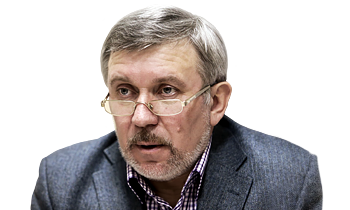The EU's position on the Nord Stream 2 project has long been consistent: the Bloc opposes it. The European Parliament has reiterated their stance in a number of resolutions. No decisions have been passed approving this project. At the same time, by saying that it's the EU, not Germany, who will ultimately decide on the NS2 completion in the context of Navalny poisoning, Angela Merkel is betting on a suggestion that a critical mass of politicians will be created in the European Commission who will support the project.
But Merkel never plays a game without Plan B. After all, she probably harbors no hope for a consensus among EU member states in support of the German proposal to complete the NS2 construction. One way or another, Poland, Romania, and the Baltic States will be opposing the move. There never was any consensus, and there will never be one.
Germany and the EU threaten Moscow with sanctions, but they are all bound to boil down to some ridiculous measures
So Merkel can only hope that her protégé at the top of European Commission, Ursula von der Leyen, will succeed in reaching a conditional agreement through certain procedural mechanisms. And this option recently did work out well when a statement was prepared, voiced by Europe's top diplomat Josep Borrell, on how unacceptable U.S. extraterritorial sanctions are targeting the European Union. At the same time, the reason for these sanctions – Nord Stream-2 – was never mentioned.
Therefore, Merkel's bet on this kind of approach is justified.
But if that doesn't work (and it won't, in my opinion), Merkel will be able to say with clear conscience that they (Germany and the European Union) have made every effort, but the European community thinks differently. Therefore, Nord Stream 2 is being suspended until better times…
It's not being put to a halt, simply suspended for a while! This, to my mind, is that very Plan B for "Frau Ribbentrop."
As a rule, the European Union tried to follow the so-called pragmatic approach, dividing politics from business. But this time – in the light of Navalny poisoning, we observe an attempt to shift away from this approach. Although, in fact, this is the result not so much of the Navalny incident but rather the accumulated effect. Because similar incidents involving Russia have already taken place multiple times, starting with Litvinenko's poisoning and ending with last year's hit job in Berlin where a Georgian national of Chechen origin, Zalimkhan Khangoshvili was murdered, in the heart of the city, close to the Chancellory's office.
Navalny's poisoning was the last straw. After all, there have always been enough people in Berlin who have reproached both the Chancellor and the federal government, pointing to the fact that their pragmatic approach to relations with Russia just doesn't work – Russia always does what it wants. Germany and the EU threaten Moscow with sanctions, but they are all bound to boil down to some ridiculous measures. For example, the entry ban… As a rule, those who are subject to these restrictions don't travel to Europe anyway, and, if they really need to, they enter as average citizens. In other words, there have always been those in Germany who insisted on tougher action against Russia.
The situation with Navalny was not meant to happen at all, because those who planned his poisoning were 100% convinced that everything would happen in Russia and everything would remain in Russia. The Russians would later conclude that the death was caused by a drug overdose, and that's it. People might make some noise about it but will eventually forget it – that was the plan. Probably none of the masterminds behind the plot could have imagined that Navalny would make it out of Russia alive, and that everything would be revealed.
In fact, this is about Russia being engaged in mass murder
However, the incident with Navalny showed that all previous actions of the West against Russia in similar cases were ineffective – Russia keeps doing what it's doing. Moreover, they stubbornly deny all charges. And this time they are acting even more aggressively, claiming that the novichok has been developed by NATO, that is, Moscow is going for counterattack.
The latest incident has surpassed all previous ones, and therefore the EU tried to deviate from the so-called pragmatic approach. Germany has finally grasped it. However, nothing is over yet, and the situation is very precarious.
Now the construction of Nord Stream-2 will definitely not resume, primarily because it is blocked by U.S. sanctions. The incident with Navalny ricochets Nord Stream 2 rather hard - not by itself, but jointly with the previous incidents. After all, having invaded Ukraine, Russia has already killed almost 15,000 citizens, while tens of thousands died in Syria as a result of barbaric bombing of civilian infrastructure by Russian air force, there was also the MH17 downing, the use of toxic and chemical weapons in Europe… In fact, it is about Russia being engaged in mass murder. No one will forget Russia's crimes.
Perhaps Russia would be more pro-active in Belarus as well, but they understand that if they deploy their "little green men," this will put an end not only to Russian-German cooperation in the gas sector, but analso to cooperation with the European Union.
However, for now, Nord Stream 2 lobbyists can still hope that Germany and Russia have simply taken a break, and that construction will resume after some time as a joint cooperation project.
Mykhailo Honchar is a President of the Center for Global Studies Strategy XXI and a Ukrainian energy expert


